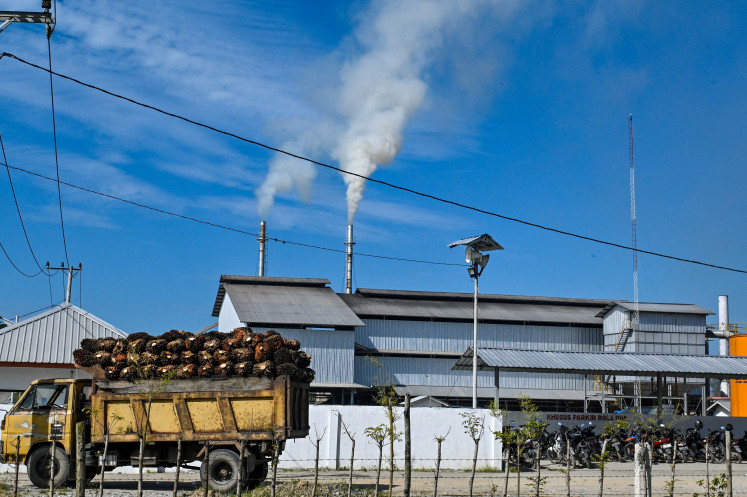Popular Reads
Top Results
Can't find what you're looking for?
View all search resultsPopular Reads
Top Results
Can't find what you're looking for?
View all search resultsSBY approves clemency for 19 drug convicts
President Susilo Bambang Yu-dhoyono approved sentence reductions for 19 drug convicts between 2004 and 2011, Law and Human Rights Minister Amir Syamsudin revealed on Tuesday, prompting many to question the government’s commitment to its antidrug policy
Change text size
Gift Premium Articles
to Anyone
P
resident Susilo Bambang Yu-dhoyono approved sentence reductions for 19 drug convicts between 2004 and 2011, Law and Human Rights Minister Amir Syamsudin revealed on Tuesday, prompting many to question the government’s commitment to its antidrug policy.
“During the seven-year period, the President received clemency requests from 128 drug convicts. He has rejected requests from 109 of them and approved 19,” Amir told a press conference held at the Office of the Coordinating Political, Legal and Security Affairs Minister.
The press conference was held to issue a formal response to public outcry over the granting of clemency to drug convict Deni Setia Maharwan, aka Rafi Muhammad Madjid. Also speaking in the press briefing were Coordinating Political, Legal and Security Affairs Minister Djoko Suyanto, Foreign Minister Marty Natalegawa, National Police chief Gen. Timur Pradopo and Attorney General Basrief Arief.
Amir declined to disclose how many requests had been approved after July 2006, when Yudhoyono pledged to decline any clemency requests filed by drug convicts.
“A lot of requests for clemency in drug-related crimes have been submitted to me, but I personally feel that I would prefer to ensure the safety of our younger generations rather than granting pardons to those who are destroying our nation’s future,” Yudhoyono said in his speech to mark the 2006 International Day against Drug Abuse and Illicit Trafficking.
Criticism of Yudhoyono’s antidrug commitment were renewed last week when the Supreme Court revealed that the President had granted commuted Deni’s death sentence to life in prison.
Deni was arrested at the Jakarta Soekarno-Hatta International Airport in 2000 for carrying 3.5 kilograms of heroin and 3 kilograms of cocaine.
The Tangerang District Court sentenced him to death in 2001.
Deni filed a case review, the final legal avenue to overturn his death sentence, with the Supreme Court after the lower courts had rejected his appeals.
Deni then filed a clemency request with the President in 2010. Under the 2010 Clemency Law, the President must consult the Supreme Court before making a decision.
Supreme Court spokesman Djoko Sarwoko said that the court did not recommend the President approve Deni’s request. Yudhoyono, however, ignored the consideration and decided to grant Deni clemency.
Beside Deni, the sentences of three other death row convicts — Merika Pranola, aka Tania; Rani, aka Melisa; and Nepali national Indra Bahadur Tamal — were commuted to life in prison.
Amir declined to elaborate on why Yudhoyono disregarded the Supreme Court’s recommendation.
“The President must have looked at the humanitarian issues involved in the case. Deni is a civil servant who came from a really poor family. He was forced to take the job as a drug courier to help solve his family’s financial problem. For example, he, at that time, found it difficult to make the payments on his Rp 40 million [US$4,173] car,”
Amir said.
Marty, meanwhile, defended Yudhoyono’s decision by saying that he joined a global trend against death penalty.
“In 2010, there were 96 countries that scrapped the death penalty from their national legal systems,” Marty said, adding that Indonesia was among 58 countries that still imposed the death penalty.
Djoko, however, was quick to respond to Marty’s statement by saying, “It does not mean that Indonesia will follow the global trend. Indonesia has its own legal mechanism and it can not simply follow others.”










